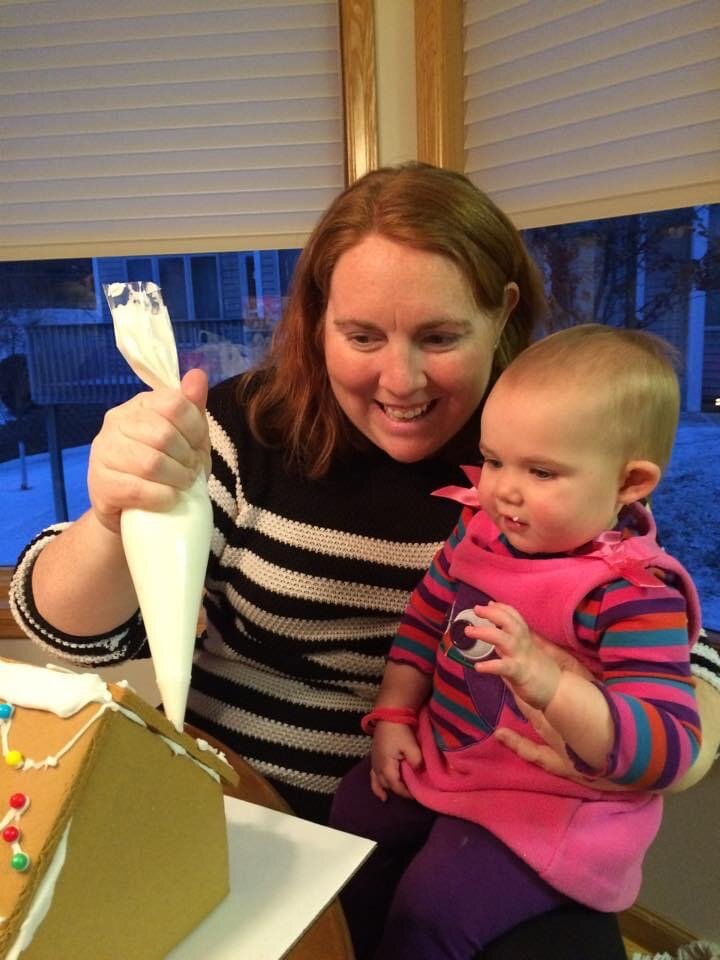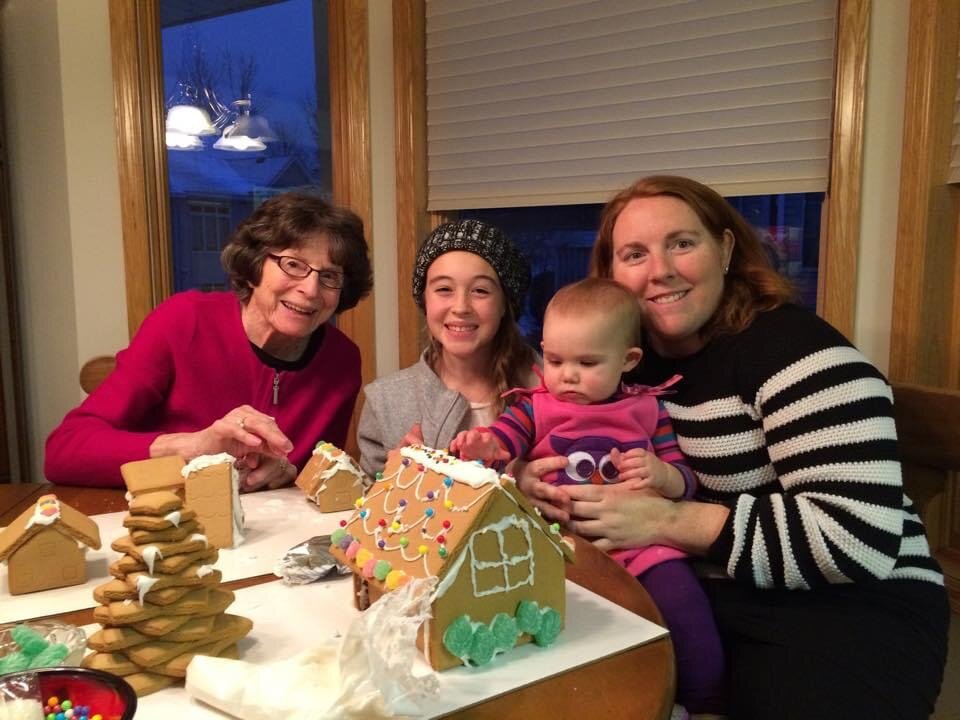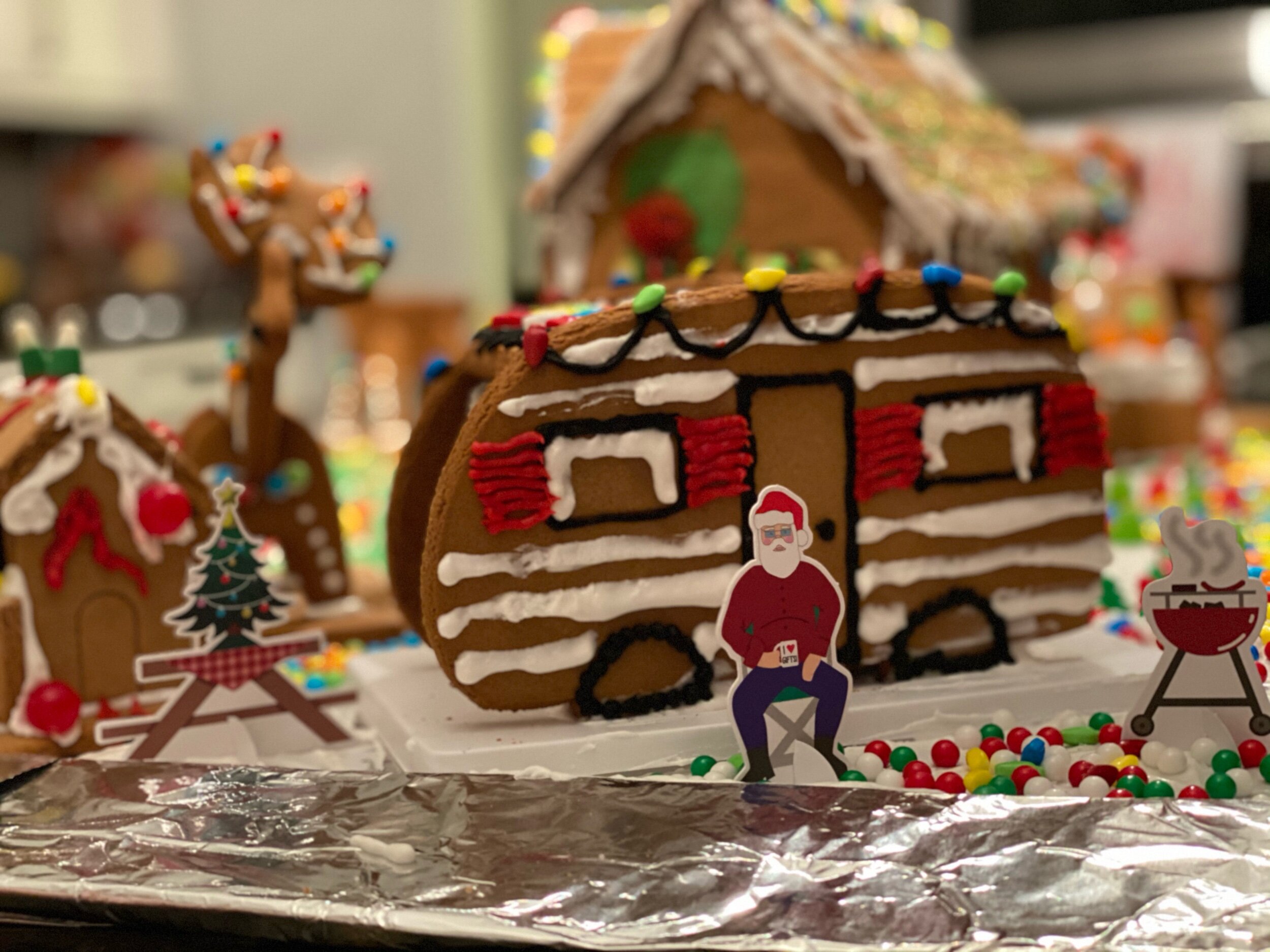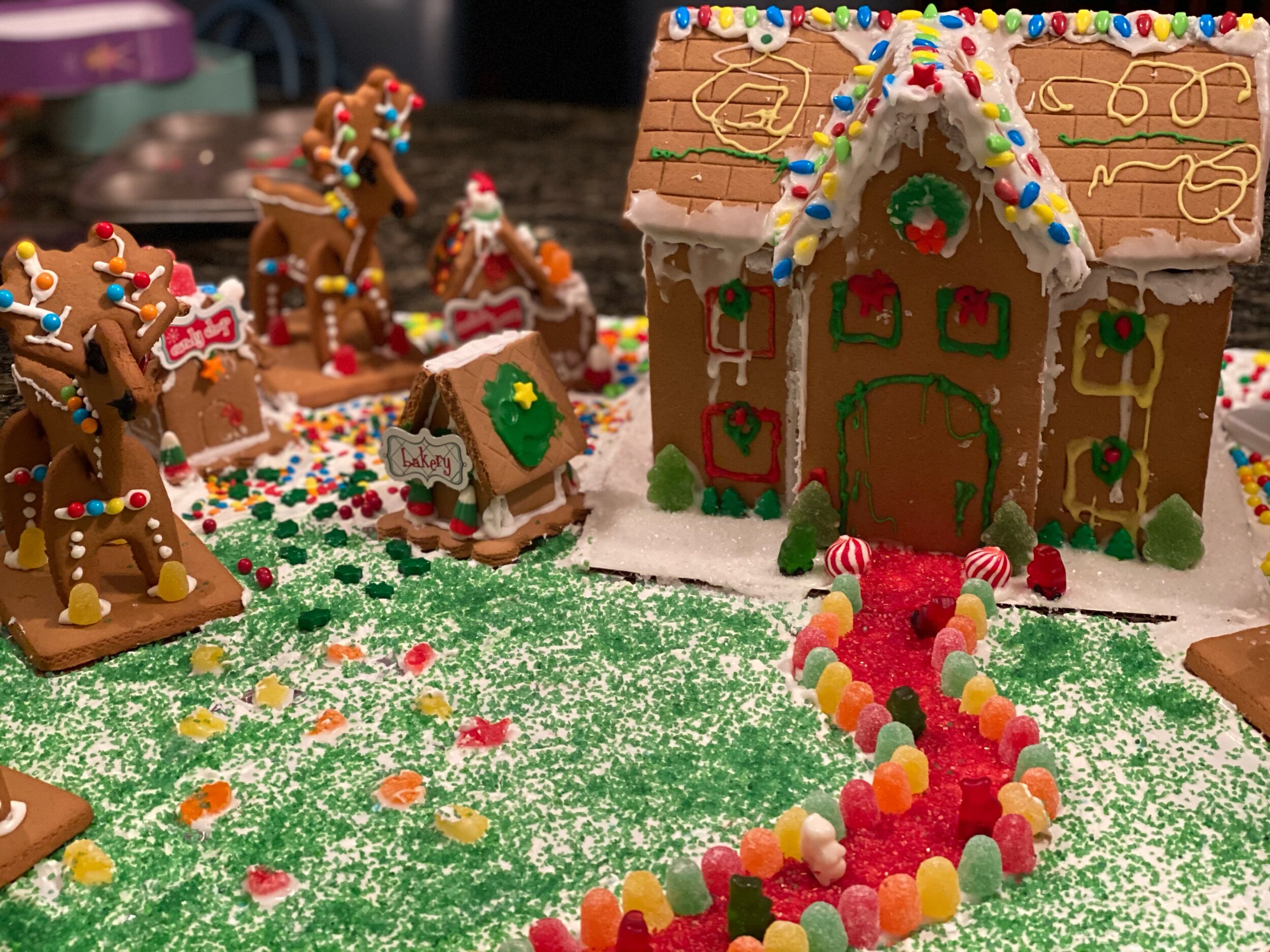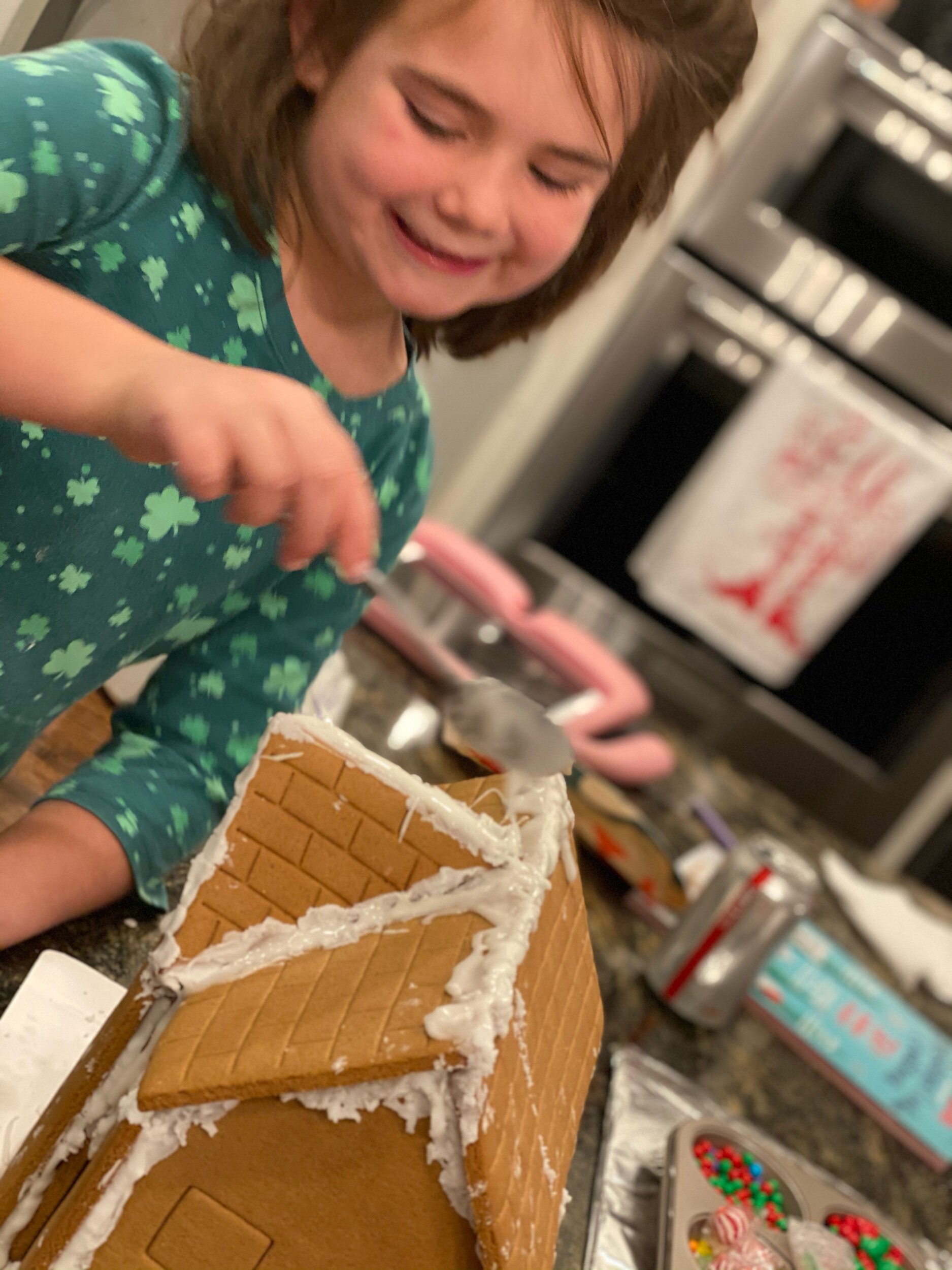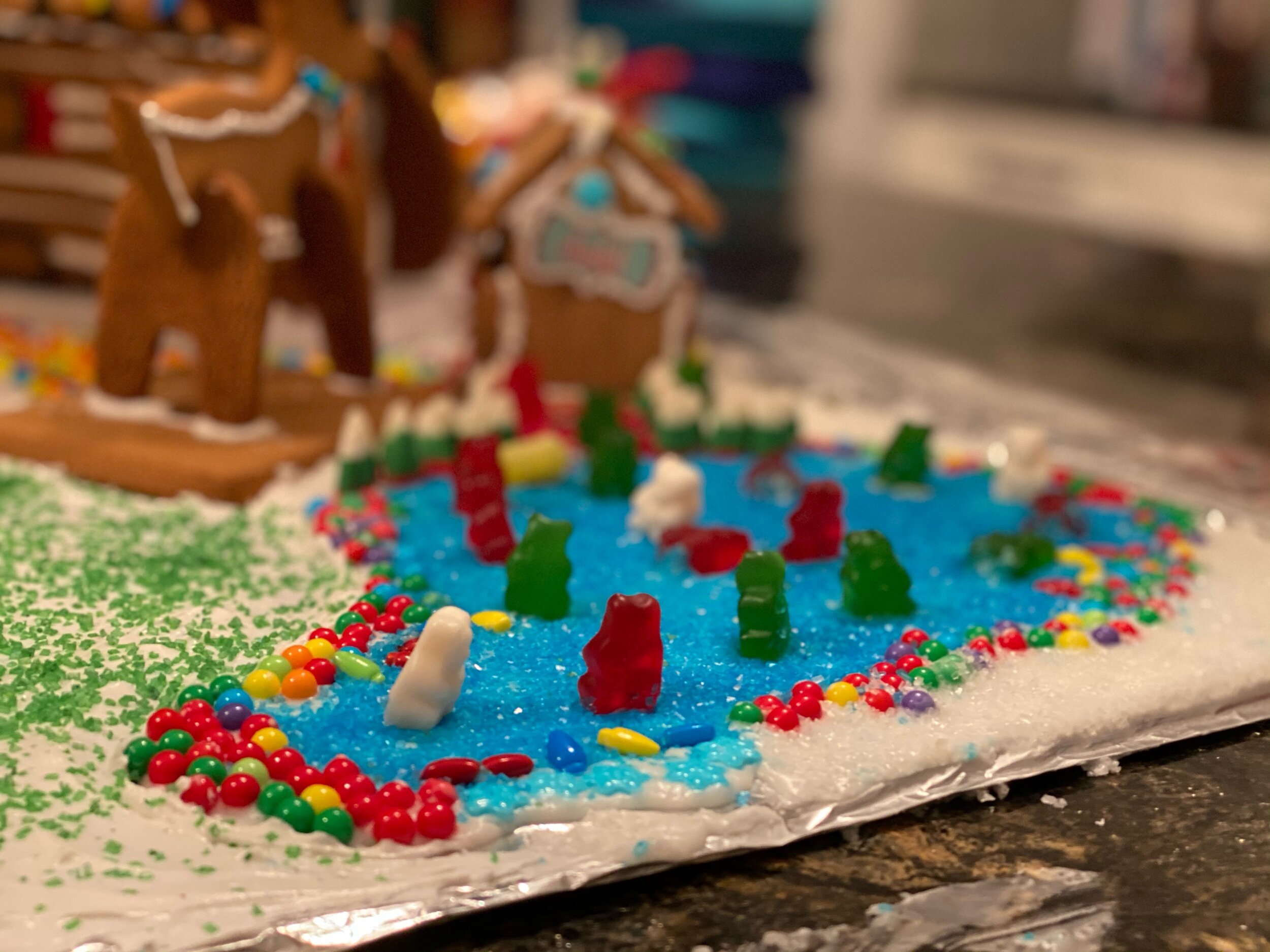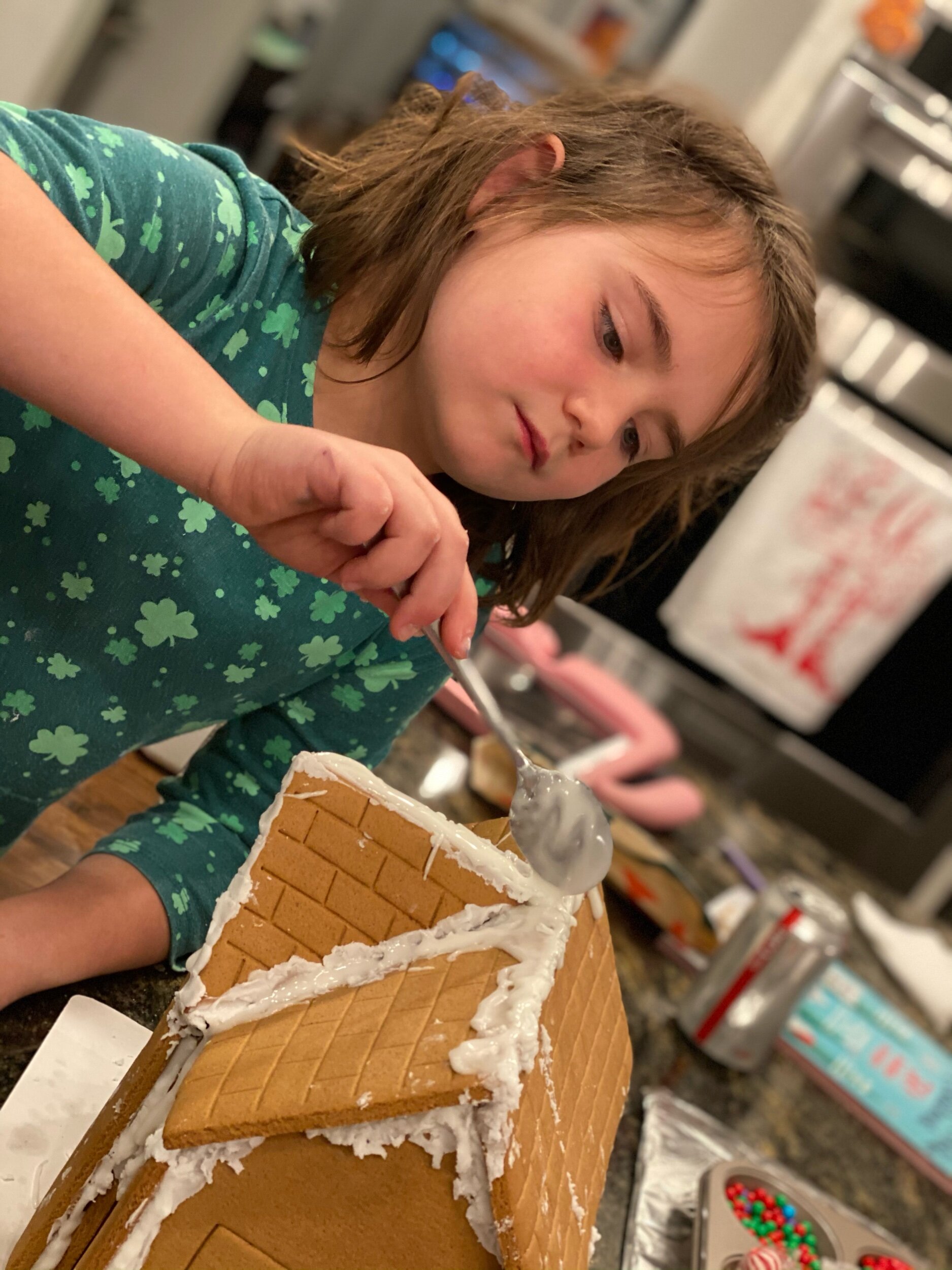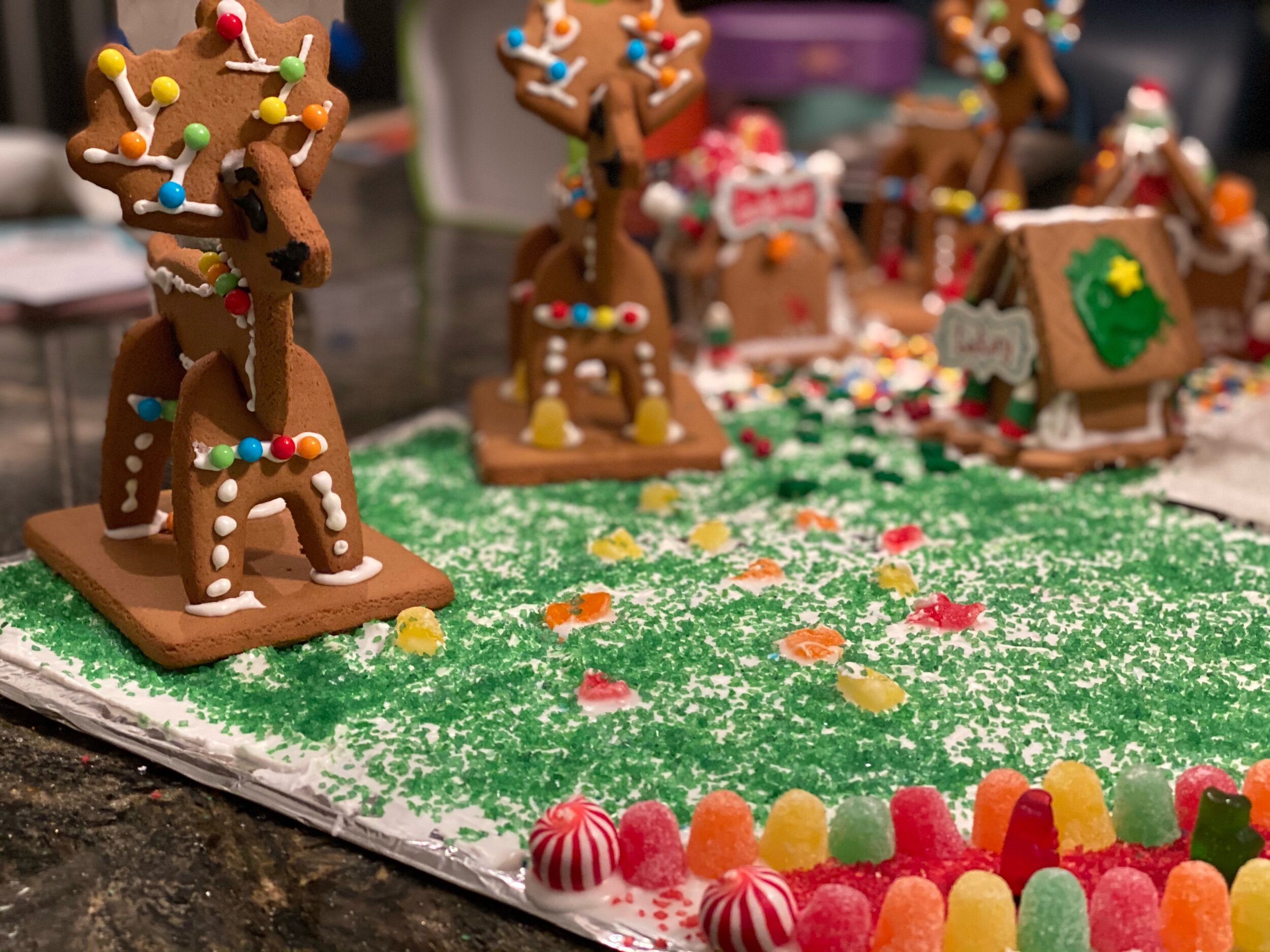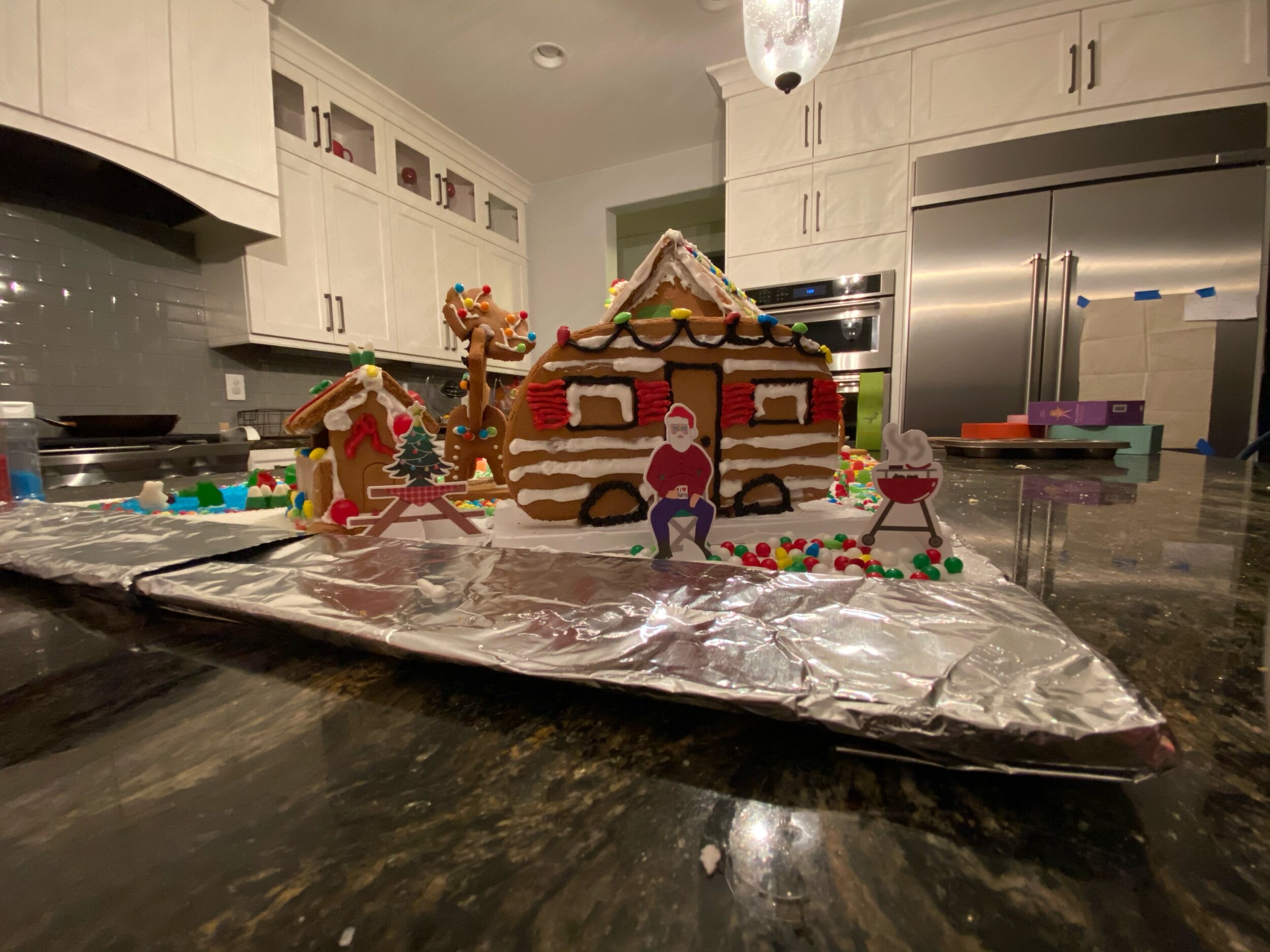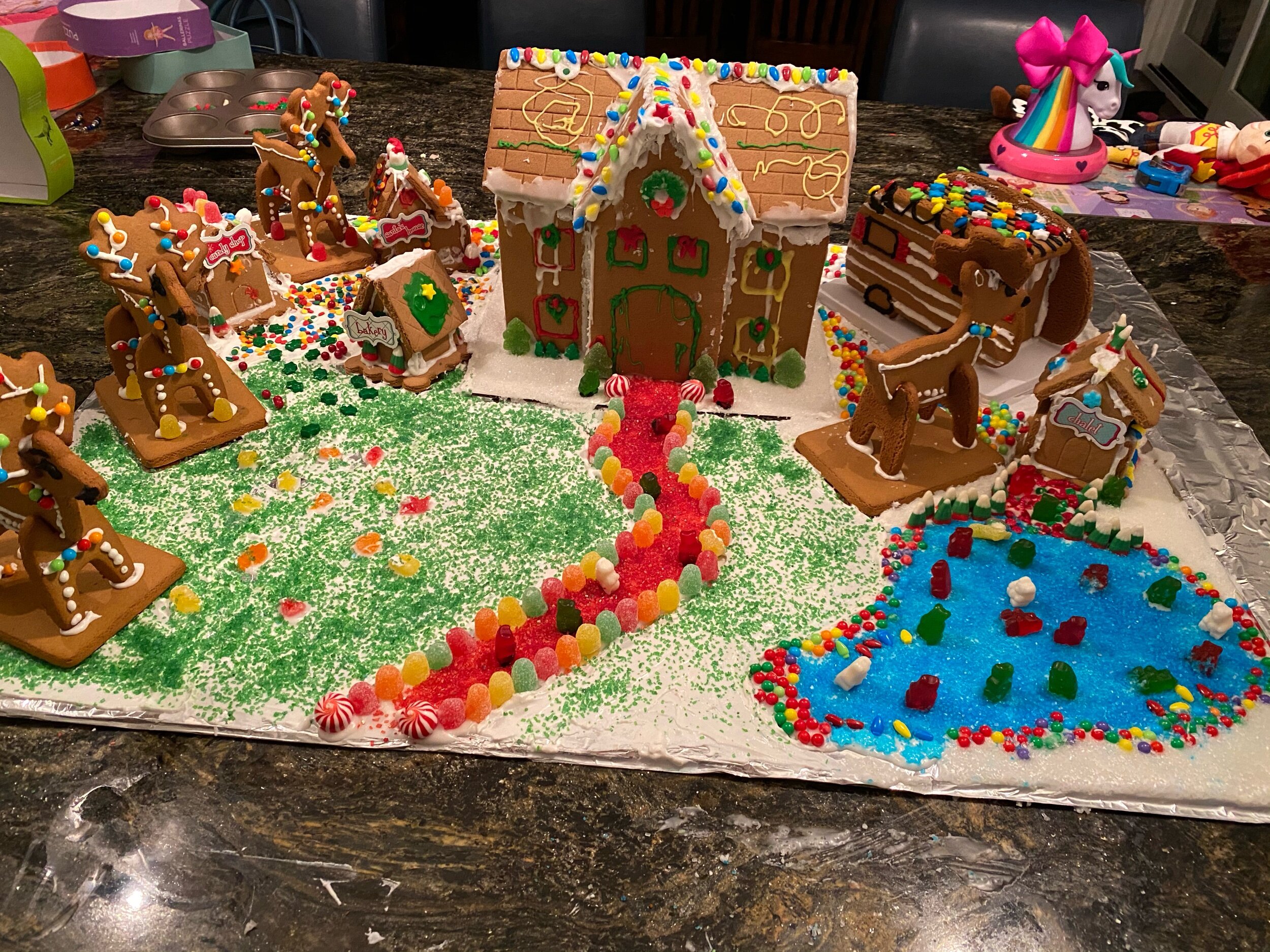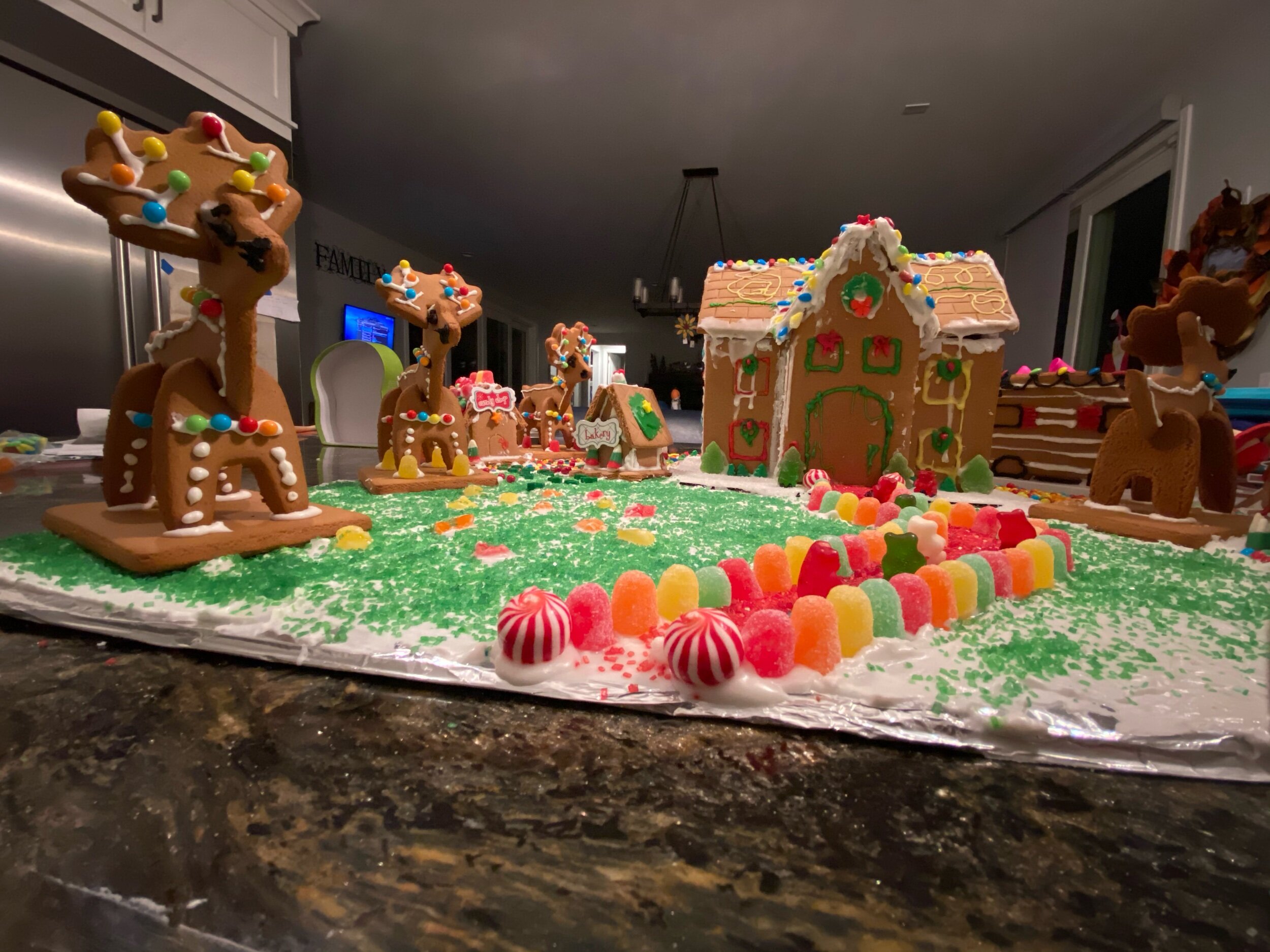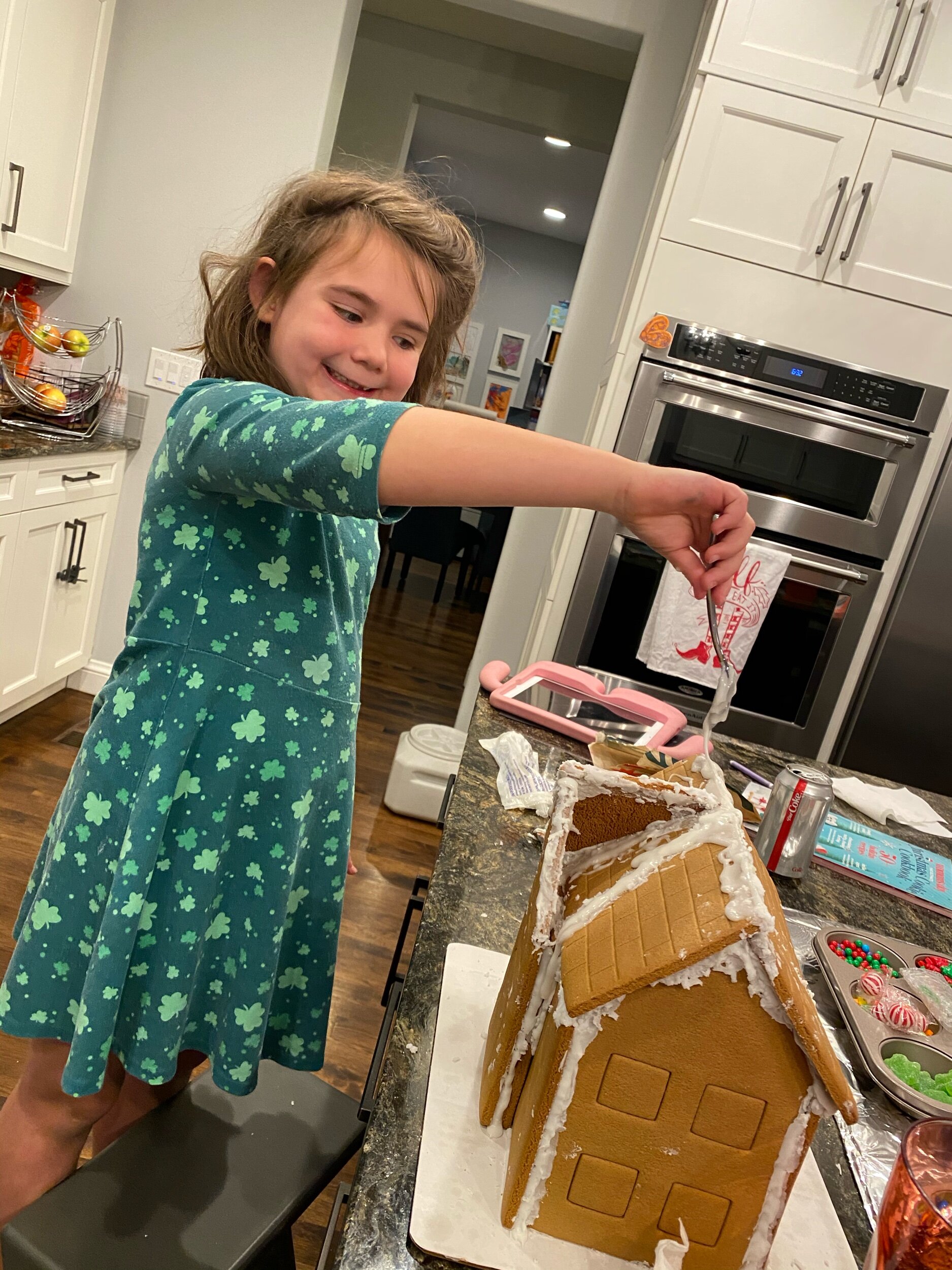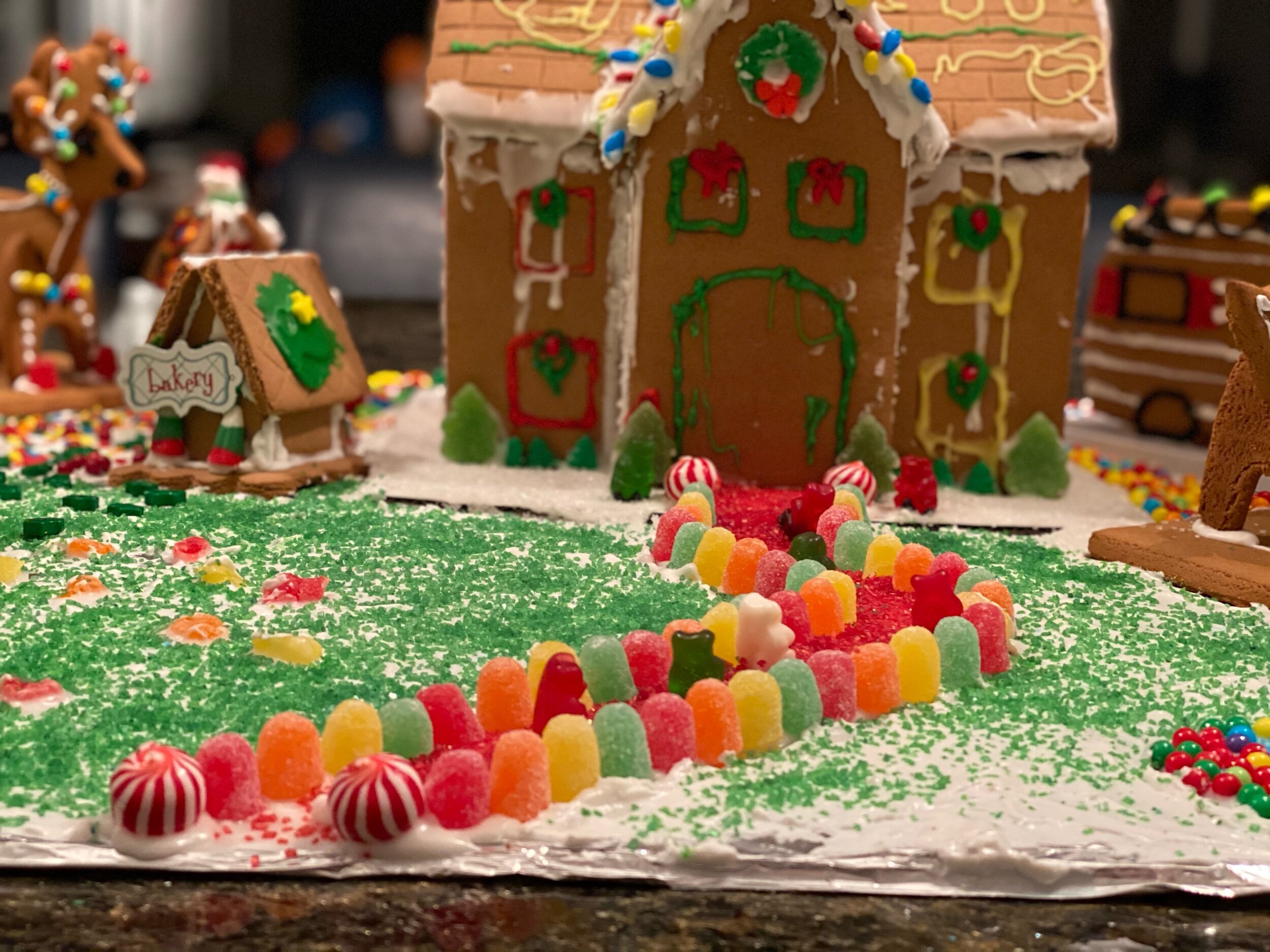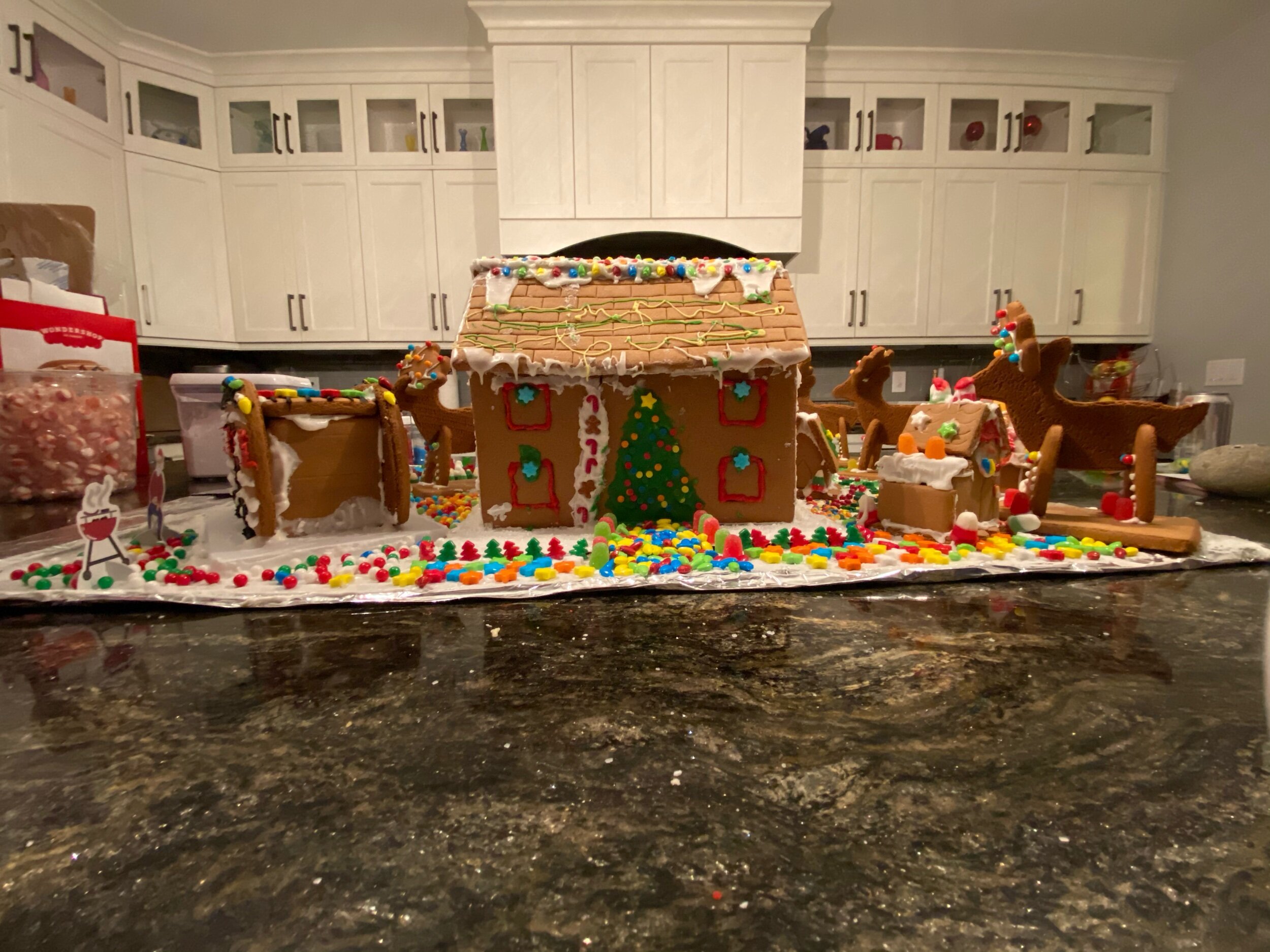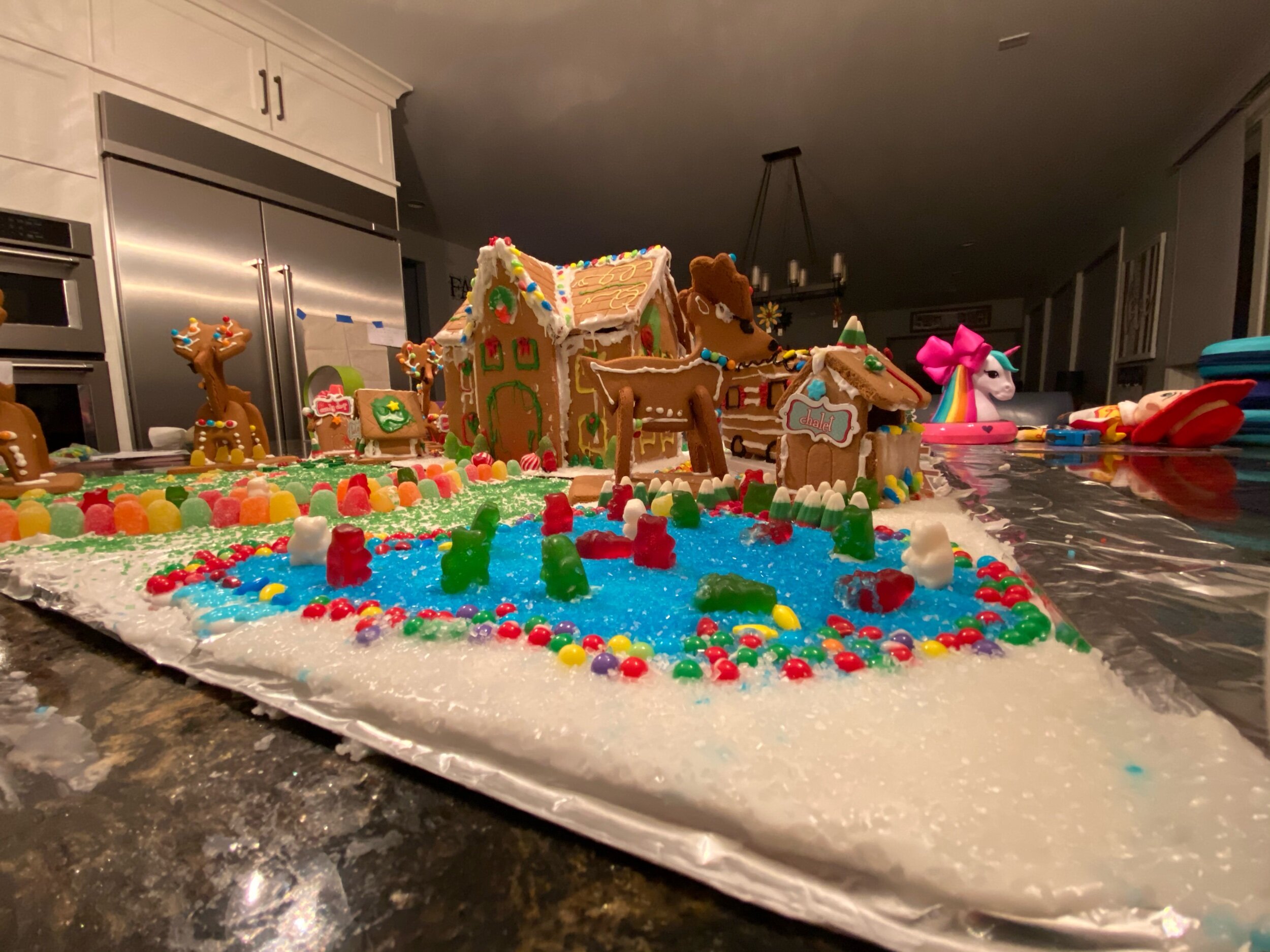The Importance of Family Traditions
“Traditions are rituals families engage in over and over, bonding us to those we love.”
Mono and her Christmas table
As a child, every year we would fly from North Carolina to Minnesota on Christmas morning to go celebrate Christmas with my mom’s family. Santa delivered a couple of gifts that we got before we left, mostly for use on the airplane ride, and then we celebrated the rest of Christmas with extended family once we arrived at my grandmother’s house. My grandmother, Momo, loved entertaining, especially at Christmas! My mom was one of five sisters, and on any given year at least four of the five daughters and their husbands and children were there. So every year, nearly all of my aunts and uncles and cousins celebrated together. Food and singing and celebrations galore. My grandfather, Popo, would make an appearance as Santa. And it felt magical.
Cousins and Santa
The most anticipated event at Christmas for the grandkids was eating Momo’s gingerbread house. In a time before Target and pre-cut gingerbread kits, it was homemade from scratch. It captured center stage on the buffet table, always a delicious work of art. The grandkids would stare and drool at it for days, wide-eyed and anxious for the moment we were given the green light to dig into cookie house, sugar icing, and candy that had been sitting out for a month.
My brother and cousin begin to disassemble the gingerbread house.
I distinctly remember traveling to Minnesota when my oldest daughter turned 1-year. Her birthday is the week of Thanksgiving, so it was the perfect time to travel and celebrate both with extended family. While we were there for the week, we made a gingerbread house. My Momo, my mom, me, and my daughter. I didn’t know it at the time, but it was the last gingerbread house-building party I would get to share with my grandmother in person over the holidays. My grandmother died two years ago, and still, to this date, every time I build our gingerbread house I can hear her voice clearly and tears fill my eyes
It goes without saying that the holidays in 2020 are going to look different. Zoom meetings with extended family replacing big family gatherings. Small nuclear family Thanksgiving dinners replacing large Friendsgiving when the extended family are out of state. Since the beginning of this pandemic, we have taken COVID seriously in our house, and we are hunkering down at home for the holidays as well.
I can’t speak for everyone, but for me, the holidays this year are feeling isolated. After 8 months of social distancing, I want my extended family. I want to laugh and cook and play games and catch up with the people who have always been my biggest supports. And it is more than a want actually; I need my family to help me feel like the world can be “normal” again.
I started to think about all the ways traditions are important for me, for my family, and for my kids. Which lead me to research the importance of traditions. Here is what I found.
Traditions help bond us to those we love. Traditions are rituals that families engage in over and over, intentionally creating traditions that bring meaning to our celebrations and help bond us to those we love. They give us a sense of belonging and community that are necessary for us to feel secure. Researchers have consistently found that families with strong family traditions report stronger connection and unity than families that haven’t established rituals together.
Traditions help shape our children’s personal identity. It is through our family traditions that children learn the story about who they are, where they belong, and what is important to their family. Traditions reinforce family values. Not only do they teach children about their cultural or religious history (ie: fixing culturally specific meals for a holiday), but they can also serve as reminders of events that shaped their family (ie: visiting the same beach house each year over Memorial Day weekend). There is research supporting the concept that children who have detailed knowledge of their family’s story are more confident and well-adjusted.
Traditions are flexible. We need both roots and wings to flourish. Families change. Individuals change. We grow up. We get married. Sometimes we get divorced. And we lose people we love to age, cancer, and accidents. While we want to continue our connection with loved ones through family traditions, it is important to recognize that traditions can change as our families change. Our yearly trips to Minnesota changed as we grew, but the importance of being with family (in North Carolina or Colorado, or Minnesota) continues. Family traditions can stretch and bend and change with each year, and still keep us rooted in place. Traditions do not disappear because COVID or a NICU stay or family events interrupt traditions one year.
Traditions can help teach values. Whether traditions are religious or secular, they impart and reinforce values. Reading nights at home reinforce the values of education and life-long learning. Family cooking nights reinforce the values of eating healthy food. Weekend hikes reinforce the values of physical activity and taking care of our bodies. We put our energy into things that we value, and our children and friends can see what our values are based on where we put our energy.
Traditions connect generations and create lasting memories. The gingerbread houses and villages we make every year are a direct result of my grandmother’s gingerbread houses from the 1980s. I can not make a gingerbread house without thinking about Momo, remembering those Christmases from my youth, and wanting to create those memories for my children. Family traditions keep us connected to loved ones when we are separated by distance or death.





